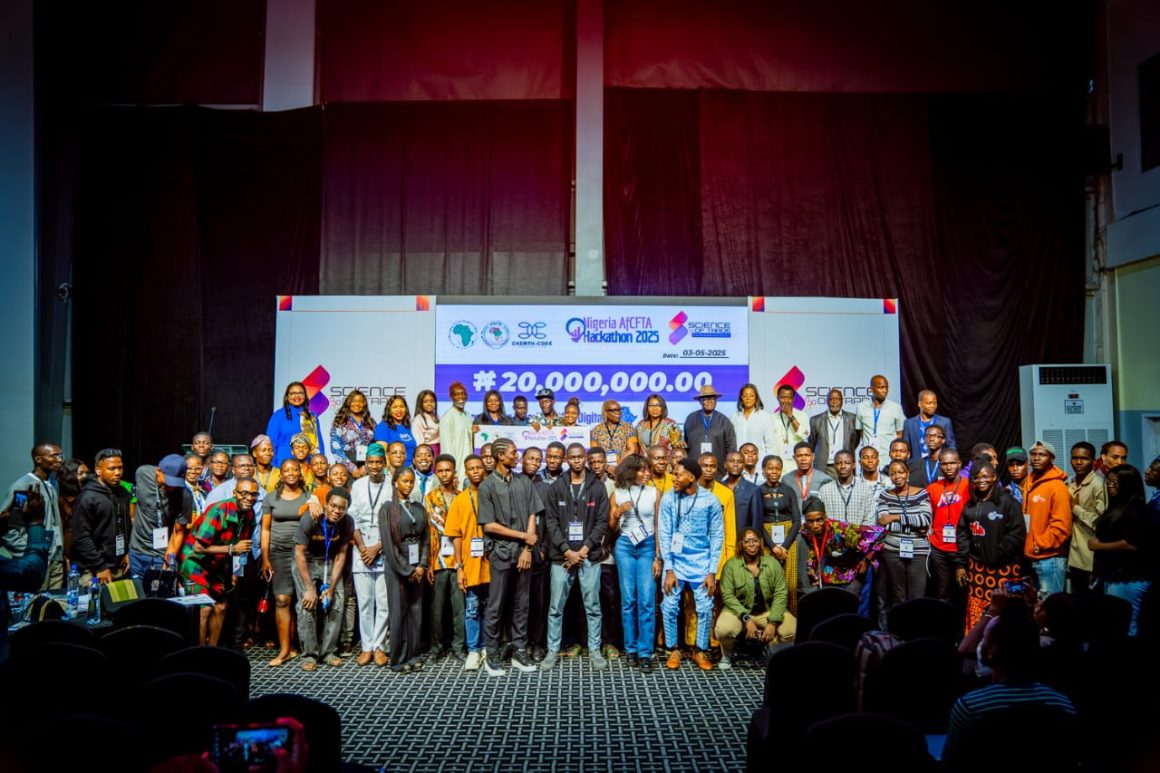The revolutionary potential of emerging technologies is essential to transforming trade and investment throughout Africa, says Kashifu Inuwa, CCIE, Director General of the National Information Technology Development Agency (NITDA).
As main speaker at the Nigeria AfCFTA Hackathon 2025, which was a part of the Science of Trade Conference in Lagos State, he emphasized the ways in which digital innovation can promote inclusivity, efficiency, and long-term economic growth.
The African Continental Free Trade Area (AfCFTA), which unites more than 1.4 billion people with a combined GDP of over $3 trillion, is one of the world’s largest free trade zones, according to the DG, who was represented by Engr. Salisu Kaka, Director of the Digital Economy Development Department.
Inuwa called the recent implementation of the AfCFTA Digital Trade Protocol a significant turning point that will remove trade restrictions, simplify regulations, and allow companies of all kinds to access new markets.
“Nigeria, with its strong entrepreneurial culture and population of over 200 million, is uniquely positioned to lead Africa’s digital transformation,” he stated.
“From Abuja, I can order products online, conduct due diligence, make payments, and receive deliveries—technology has made trade seamless,” Inuwa stated, highlighting the emergence of e-commerce and mobile payments as game changers.
“With the African Union endorsing the Digital Trade Protocol in 2024, this hackathon comes at a critical moment. It seeks to remove trade barriers and harmonize digital laws among all 54 African countries,” he continued.
While global technological advancements have changed the nature of commerce, Inuwa emphasized that many African trade systems continue to be hampered by antiquated practices, copious amounts of paperwork, and logistical bottlenecks. However, thanks to advancements like blockchain, artificial intelligence, the Internet of Things, and digital platforms, which are now essential to trade operations, a change is taking place.
He mentioned how the Nigeria Customs Service (NCS) was able to increase revenue by 238% between 2017 and 2023 by successfully utilizing technology through the Nigeria Integrated Customs Information System (NICIS II), which automated crucial procedures like cargo tracking, risk assessment, and declarations. Nigeria’s advancement in digital trade facilitation is demonstrated by the Unified Customs Management System, which was launched in December 2024 as NICIS II’s replacement and has already produced over ₦31 billion.
Youth and MSME Inclusion, E-Commerce Adoption, E-Commerce Policy and Trust, Digital Payments, and the E-Commerce Regulatory Sandbox are the five priority areas that form the framework of the hackathon. These are industries where trade dynamics can be greatly improved by digital tools.
“I have no doubt that the Hackathon will generate creative, scalable solutions to streamline cross-border transactions, increase intra-African e-commerce, and equip MSMEs with digital capabilities to compete globally,” Inuwa said.
He characterized the occasion as a launching pad for innovations that will streamline payments, encourage inclusivity, and strengthen Nigeria’s position as a leader in implementing the AfCFTA framework for the digital economy.
Olusegun Olutayo, Senior International Trade Policy and Law Expert, spoke on behalf of Dr. Olusegun Awolowo, National Coordinator of the Nigeria AfCFTA Coordination Office, who emphasized in his welcome address that transformation is an ongoing process. For Africa to become a center for digital trade, he emphasized the continent’s emphasis on cooperation, innovation, and inclusive growth.
Awolowo reiterated the African Continental Free Trade Area’s (AfCFTA) transformative potential, highlighting how it promotes intra-African trade, investment, and economic growth by presenting Africa as a single market with over a billion people.
He emphasized the importance of shared ownership and active participation in achieving this vision. He claims that by emphasizing inclusion, innovation, and fair access, the Hackathon is a concrete way to put the AfCFTA Digital Trade Protocol into practice. Actionable solutions that connect policy and practice are anticipated to be produced, boosting Africa’s digital economy and enabling the continent’s future generation of innovators.



Leave a Reply